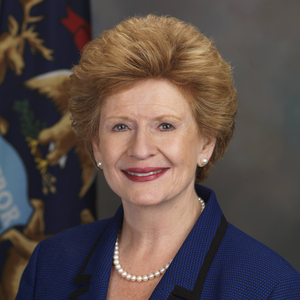Bill will help farmers, foresters participate in carbon markets

April 22, 2021
BY Erin Voegele
Sens. Mike Braun, R-Ind.; Debbie Stabenow, D-Mich.; Lindsey Graham, R-S.C.; and Sheldon Whitehouse, D-R.I., on April 20 re-introduced the Growing Climate Solutions Act, which will break down barriers for farmers and foresters interested in participating in carbon markets so they can be rewarded for climate-smart practices. The bill passed out of the Senate Committee on Agriculture, Nutrition and Forestry on April 22. The legislation was previously introduced in June 2020 and addressed during a senate hearing later that month.
The bill would create a certification program at USDA to help solve technical entry barriers that prevent farmer and forest landowner participation in carbon credit markets. According to the senators, these issues—including access to reliable information about markets and access to qualified technical assistance providers and credit protocol verifiers—have limited both landowner participation and the adoption of practices that help reduce the cost of developing carbon credits.
To address this, bill establishes a Greenhouse Gas Technical Assistance Provider and Third-Party Verifier Certification Program through which USDA will be able to provide transparency, legitimacy, and informal endorsement of third-party verifiers and technical service providers that help private landowners generate carbon credits through a variety of agriculture and forestry related practices. The USDA certification program will ensure that these assistance providers have agriculture and forestry expertise, which is lacking in the current marketplace. As part of the program, USDA will administer a new website, which will serve as a “one stop shop” of information and resources for producers and foresters who are interested in participating in carbon markets.
Advertisement
Through the program, USDA will help connect landowners to private sector actors who can assist the landowners in implementing the protocols and monetizing the climate value of their sustainable practices. Third party entities, certified under the program, will be able to claim the status of a “USDA Certified” technical assistance provider or verifier. The USDA certification lowers barriers to entry in the credit markets by reducing confusion and improving information for farmers looking to implement practices that capture carbon, reduce emissions, improve soil health, and make operations more sustainable.
The bill would also create an advisory council composed of agricultural exports, scientists, producers and others that advise the secretary of agriculture and ensure that the certification program remains relevant, credible, and responsive the needs of farmers, forest landowners, and carbon market participants. Finally, the bill would also instruct the USDA to produce a report to Congress to advise about further development of this policy area, including barriers to market entry, challenges raised by farmers and forest landowners, market performance, and suggestions on where the agency can make a positive contribution to the further adoption of voluntary carbon sequestration practices in agriculture and forestry.
Advertisement
Supporters of the Growing Climate Solutions Act include American Farm Bureau Federation, American Soybean Association, Archer Daniels Midland Co., Biotechnology Innovation Organization; Corn Refiners Association, Green Plains, National Alliance of Forest Owners, National Woodland Owners Association, National Corn Growers Association, National Farmers Union, Novozymes, Syngenta, Growth Energy, and National Biodiesel Board.
Growth Energy has spoken out in support of the bill. “Today, on Earth Day, we applaud Senators Stabenow, Braun, Graham, and Whitehouse and the broad and bipartisan list of co-sponsors for their leadership on the Growing Climate Solutions Act,” said Emily Skor, CEO of Growth Energy. “Our ag communities are already eager to play a large role in reducing emissions nationwide and soil carbon sequestration expands this participation in our nation’s climate change strategy. The Growing Climate Solutions Act rightly rewards farmers for climate-smart practices and provides important guidelines for success.”
Additional information is available on the Senate Committee on Agriculture, Nutrition and Forestry website.
Related Stories
The USDA on April 14 announced the cancellation of its Partnerships for Climate-Smart Commodities program. Select projects that meet certain requirements may continue under a new Advancing Markets for Producers initiative.
The governors of Iowa, Nebraska, South Dakota and Missouri on April 10 sent a letter to U.S. EPA Administrator Lee Zeldin urging the agency to set higher Renewable Fuel Standard renewable volume obligations (RVOs).
President Donald Trump on April 8 issued an executive order that aims to protect oil, natural gas, coal, hydropower, geothermal, biofuel, critical mineral, and nuclear energy resources from state overreach.
Growth Energy, Clean Fuels respond to oil industry in case pushing EPA to reallocate lost biofuel gallons
Growth Energy and Clean Fuels Alliance America on April 14 filed a reply brief in a case challenging the U.S. EPA for its failure to reallocate gallons lost due to SREs granted after RVOs have been issued under the Renewable Fuel Standard.
The Michigan Advanced Biofuels Coalition and Green Marine are partnering to accelerating adoption of sustainable biofuels to improve air quality and reduce GHG emissions in Michigan and across the Great Lakes and St. Lawrence Seaway.
Upcoming Events










